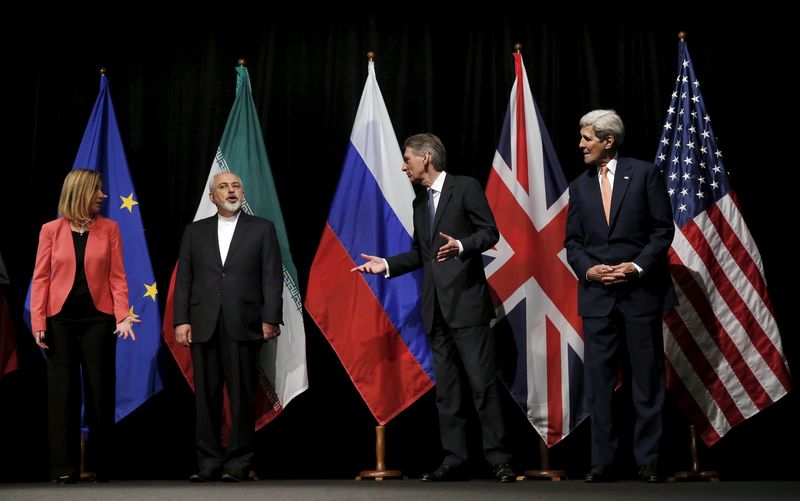By Alistair Bell and Patricia Zengerle
WASHINGTON (Reuters) - Threats on Tuesday by U.S. Republican presidential candidates to scrap the Iran nuclear agreement look difficult to carry out even if the party wins control of the White House next year, said a senior Republican lawmaker and foreign policy experts.
Hours after President Barack Obama hailed the Iran deal as a "new direction," Republican White House hopefuls Scott Walker and Rick Perry vowed to rip it up if they reach the Oval Office and Senator Marco Rubio suggested he would re-impose sanctions.
But a prominent Republican senator acknowledged that a new U.S. president who wanted to undermine the accord would have limited room to maneuver.
The United States will have lost some leverage by the time a new administration takes office in early 2017 because the sanctions that are credited with bringing Tehran to the negotiating table will be gone by then.
"The next president can start from scratch," said Bob Corker, chairman of the Senate Foreign Relations Committee and a major Republican voice in Congress on Iran.
"What would have happened, though, is the international sanctions process would have been totally dismantled," he said.
Under the deal, sanctions imposed by Washington, the European Union and the United Nations will be lifted in return for Iran agreeing to long-term curbs on a nuclear program that the West suspects is aimed at creating a nuclear bomb. Iran says the program is for peaceful purposes.
The accord reached between Iran and six major world powers will be debated in the U.S. Congress but Obama said on Tuesday he would veto any measure to block it.
The deal is not an international treaty so a new Republican president with a majority in Congress could just scrap it, either by introducing new sanctions on Iran or reviving the current ones.
"We need a president who will terminate that bad deal with Iran on day one," said Wisconsin Governor Scott Walker said at a campaign event in Nevada. "I will put in place crippling economic sanctions on Iran and I will convince our allies to do the same," he said.
Perry, a former governor of Texas, was equally strident, saying that one of his first acts as president would be to "fully rescind this accord."
But just dissolving the deal is a high-risk strategy, said Blaise Misztal, head of the national security program at the Bipartisan Policy Center think tank in Washington.
It would set off a race by Iran to develop a nuclear bomb, which it could do within about a year, much faster than new sanctions could have any impact, essentially leaving the United States with little option but to use force to stop it, he said.
BUILD A CASE
"A more likely scenario would be to begin to build a case" against Tehran if it is caught cheating on the agreement or dragging its feet, Misztal said.
Suspicion that Iran is failing to comply with provisions in the deal on opening its military facilities to inspections or is importing sensitive military materials would cause a U.S. administration to raise the alarm.
Evidence that past Iran nuclear research had military dimensions could also be a deal breaker.
Bruce Jentleson, a political scientist at Duke University and a former adviser to Obama's State Department, said a new president could damage U.S. standing in the rest of the world by hastily scrapping the Iran deal.
"This is an agreement that is not just between us and Iran but it will be put to a (U.N.) Security Council resolution and it's one of the few issues that we are managing to work on these days with Russia and China. A president would really have to think about what are the consequences for relations with many different countries," he said.
Rubio, a foreign policy heavyweight among the 15 Republican White House candidates, tacitly acknowledged that the Congress might fail to block the Iran deal because of Obama's veto power.
"It will then be left to the next president to return us to a position of American strength and re-impose sanctions on this despicable regime until it is truly willing to abandon its nuclear ambitions and is no longer a threat to international security," he said.
Former Florida Governor Jeb Bush, who leads many polls of Republicans seeking the presidential nomination, criticized what he called a "dangerous, deeply flawed and short-sighted deal."
Bush did not say whether he would try to roll back the deal if he is elected to the White House.

Lindsey Graham, a senator from South Carolina, said the deal was a "possible death sentence for Israel," while former Arkansas Governor Mike Huckabee said he would "keep all options on the table," including using military force to topple Iran's leaders should it threaten Israel.